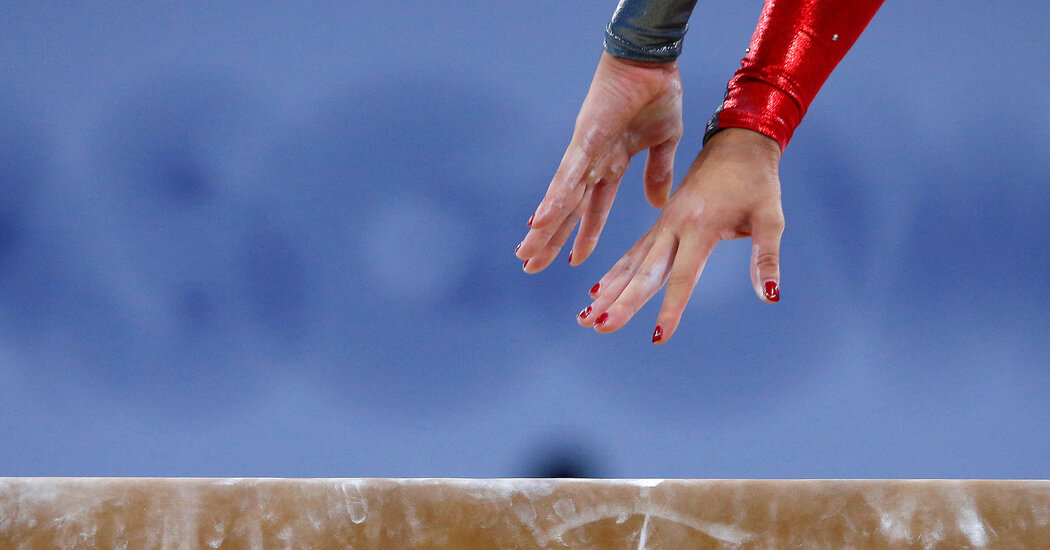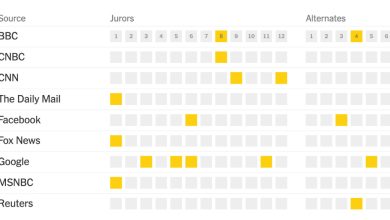
Britain Restricts Weighing of Gymnasts in Wake of Abuse
The weighing of gymnasts will be restricted under new British rules after a report detailed abuse in the sport, particularly of women and girls.
Gymnasts who are 11 and older in Britain may now be weighed only with their permission and with the permission of a parent if they are under 18. The weighing must be done by sports science or medical practitioners and it must have a “scientifically valid rationale.”
Gymnasts 10 and under will no longer be permitted to be weighed at all in a gymnastics setting.
In addition, the new rules require that gymnasts be given opportunities to hydrate regularly when practicing and be allowed visits to the restroom when needed. They also require that children under 12 not be made to practice during normal school hours and that older children can miss class time only under “exceptional circumstances.”
An independent investigation in 2022 found that the well being of gymnasts “has not been at the center of British Gymnastics’ culture.”
The report found many instances of physical abuse by coaches, like urging athletes to practice with injuries; emotional abuse, like name calling; and sexual abuse, like inappropriate touching.
More than a quarter of gymnasts surveyed said their weight had been monitored excessively. Gymnasts said that coaches controlled what they ate and publicly announced their weights.
The report said the problems primarily affected female gymnasts.
“While practices have moved on a long way, we know there has been poor practice in these areas,” Sarah Powell, the chief executive of British Gymnastics, said in a statement announcing the new rules.
Gymnastics, particularly for women, has been troubled for years with problems with anorexia and bulimia. Gymnasts have frantically tried to lose weight, often with the encouragement of their coaches, to improve their performances, only to develop unhealthy relationships with food and body image.
Christy Henrich, a world-class American gymnast, died in 1994 at age 22 from multiple organ failure caused by starvation. Although her death prompted a reckoning in the gymnastics world, progress has been slow. Female athletes in the intervening decades have often said that coaches make remarks about their weights and closely monitor their food intake.
Issues with weight and female athletes are hardly unique to gymnastics. In figure skating, the American Olympic medalist Gracie Gold said, after a coach made a remark about her weight, that she cut her food intake to a few hundred calories from 2,000 a day. While she initially felt the weight loss helped her skating, after some setbacks she plunged into a binge-purge eating cycle, she said, derailing her career.
Mary Cain, the fastest young middle-distance runner in the United States, said the famous track coach and marathoner Alberto Salazar and his all-male staff had pushed her to become thinner. She was weighed in front of her teammates and was shamed if she did not reach a weight goal, she said.
“I was emotionally and physically abused by a system designed by Alberto and endorsed by Nike.” She developed Relative Energy Deficiency in Sport, RED-S, and stopped having her period for three years.
After her revelation, other Olympic-level track athletes said they too had faced weight shaming.
“These new policies make clear that what matters most in gymnastics is the welfare of those involved,” Ms. Powell said on Monday. She said the new policies would “ensure everyone understands what is OK and what is not OK.”




